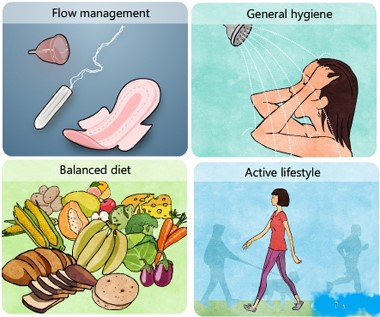For a few days every month, most women experience piercing pains either leading to, or during their menstrual period.
Experts say many factors cause irregular periods, some of which are related to changes in hormone levels, stress and certain health conditions.
Changes in the level of the hormones estrogen and progesterone can also disrupt the normal pattern of any female’s monthly period. Dr. Minesh Khatri, Medical Director with WebMD Editorials, said this often signals underlying health issues, describing menstrual irregularities as a situation whereby your period comes early, late or not at all; or when the length of your menstrual cycle changes.

He notes that irregular menstrual periods, medically known as oligomenorrhea, are a common concern among women of reproductive age, and they can manifest as variations in the cycle length, heavy or light bleeding, missed periods or other disturbances in the menstrual pattern.
Khatri also notes that potential causes of irregular periods can be taken note of by individual women in order to understand the lifestyle changes and remedies they need to manage the issue. He said it is also noteworthy to note that they are characterized by variances in the length of each person’s menstrual cycle or the volume of blood flow from one period to the next.
He adds that it is crucial to remember that sporadic anomalies are typical and may not always signify a dangerous medical condition; but conversely, may also indicate a more serious issue which demands women to know their bodies well.
An irregularity in the body’s hormone levels results in hormonal imbalances which can cause a number of health problems. Hormones are chemical messengers that control many physiological functions, such as women’s menstruation, mood, growth and development, metabolism, and sexual function, hormonal abnormalities can significantly impact health and well-being.
According to medical experts, at the heart of menstrual cycle lies a complex web of hormonal relations. According to the Cleveland Clinic, hormones are chemicals that coordinate different functions in your body by carrying messages through your blood to your organs, skin, muscles and other tissues. These signals tell your body what to do and when to do it. Hormones are essential for life and your health.
From menstruation and mood to growth, metabolism and sexual function, hormones are very important and imbalances in hormonal levels can affect a woman’s wellbeing and health.
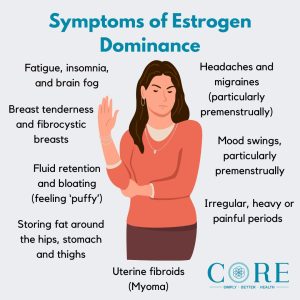 Facts women must know about their bodies
Facts women must know about their bodies
Estrogen: According to Johns Hopkins Medicine, estrogens are a group of hormones that play an important role in the normal sexual and reproductive development in women. They are also sex hormones. The woman’s ovaries make most estrogen hormones, although the adrenal glands and fat cells also make small amounts of the hormones.

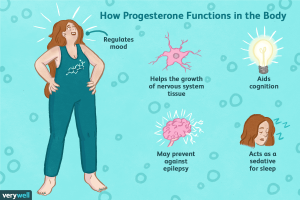 Progesterone: This hormone assists in regulating the menstrual cycle, providing essential support for pregnancy, and maintaining the uterine lining.
Progesterone: This hormone assists in regulating the menstrual cycle, providing essential support for pregnancy, and maintaining the uterine lining.
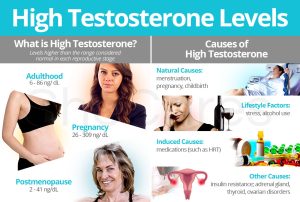
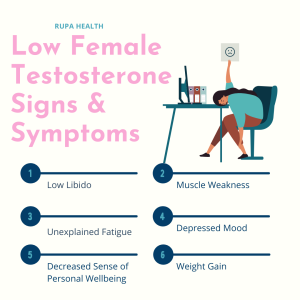 Testosterone: often associated with men, is also present in women in similar quantities, and contributes to libido, muscle mass and bone health.
Testosterone: often associated with men, is also present in women in similar quantities, and contributes to libido, muscle mass and bone health.
Thyroid hormones: According to the National Institutes of Health, the thyroid hormone is well known for controlling metabolism, growth, and many other bodily functions.
Insulin: Produced by the pancreas, insulin controls blood sugar because imbalances in insulin leads to conditions like diabetes.
Cortisol: This is a steroid hormone that is produced by your two adrenal glands, which sit on top of each kidney. When you are stressed, increased cortisol is released into your bloodstream. Having the right cortisol balance is essential for your health, and producing too much or too little cortisol can cause health problems.
Dr. John Mitchell, an expert in endocrinology, notes that hormone disruption can arise from a variety of sources, including:

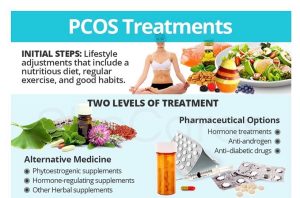 Medical conditions such as Polycystic Ovary Syndrome (PCOS), which is a condition in which the ovaries produce an abnormal amount of androgens, male sex hormones that are usually present in women in small amounts. The name polycystic ovary syndrome describes the numerous small cysts (fluid-filled sacs) that form in the ovaries.
Medical conditions such as Polycystic Ovary Syndrome (PCOS), which is a condition in which the ovaries produce an abnormal amount of androgens, male sex hormones that are usually present in women in small amounts. The name polycystic ovary syndrome describes the numerous small cysts (fluid-filled sacs) that form in the ovaries.
Next is what Mitchell says is stress. Common symptoms of stress in women include: headaches, difficulty sleeping, tiredness, pain (most commonly in the back and neck), overeating/under eating, skin problems, drug and alcohol misuse, lack of energy, upset stomach, less interest in sex/other things you used to enjoy.
Mitchell also warns that medications, including hormonal contraceptives, may cause hormone fluctuations and imbalance.

 Nutritionists advise that consuming nutritious foods, exercising regularly, and engaging in other health-promoting behaviors such as meditating and getting enough sleep may go a long way toward improving your hormonal health.
Nutritionists advise that consuming nutritious foods, exercising regularly, and engaging in other health-promoting behaviors such as meditating and getting enough sleep may go a long way toward improving your hormonal health.
Experts at Ageless Restoration warn that underlying health issues and getting older can both cause hormonal fluctuations, making you feel less than your best. A hormonal imbalance can even cause weight gain, experts say, along with a few other unpleasant side effects.
This is even as exposure to endocrine-disrupting chemicals can affect hormone balance.
Tackling hormonal imbalance
Dr Mitchell notes that these hormonal imbalances are not one-size-fits-all, rather, it is an individual experience that demands each woman to consider what suits their bodies for their well-being.
Starting with Hormone Replacement Therapy [HRT] to restore balance; while medications can also be recommended for conditions like PCOS, thyroid disorders or diabetes.
On lifestyle changes, Mitchell says balanced diets, regular exercise, stress management and weight maintenance are necessary for making hormones function optimally.
Stress management such as relaxation, meditation and playing soothing tunes, help relieve stress.
And in exceptional cases or extreme conditions, surgical interventions can be used to remove tumors that affect hormone-producing glands.

